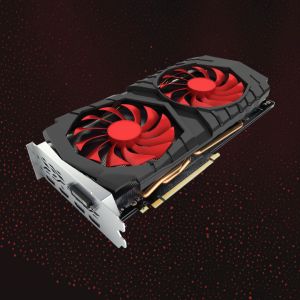China urges firms to shun Nvidia’s H20 chips
3 min read
The Chinese government has advised local companies against using Nvidia’s H20 chips, adding another hurdle to the chipmaker’s recovery plans in China. According to sources, local firms received directives cautioning against the use of H20s in government or national security-related work across state and private sectors. One source added that the guidance extends to AMD’s AI accelerators. However, there is no confirmation that AMD’s MI308 chip was explicitly mentioned. AMD and Nvidia’s China revenues fell considerably following export restrictions imposed by President Trump. But more recently, Washington authorized both companies to resume shipments of lower-tier AI chips to China, provided they hand over 15% of the related revenue to the federal government—a contentious deal that reopened the door for some sales. However, China’s latest guidance threatens to hurt their businesses significantly. Nvidia claims its chips are secure and pose no threat to China’s security Reportedly, some of Beijing’s messages to companies sought to know why they opted for Nvidia’s H20 chips instead of local equivalents, whether the choice was essential given domestic alternatives, and if they had identified any security flaws . In recent weeks, state media outlets also raised questions on the H20’s security and reliability. Chinese regulators have conveyed some of those concerns to Nvidia, which still insists its chips have no such vulnerabilities and pose no threat to national security. The American technology company reassured Chinese authorities: “The H20 is not a military product or for government infrastructure,” adding that the country has never even depended on U.S. chips for government functions. However, similar security concerns in the past prompted China to limit Tesla cars and Apple iPhones in designated institutions and ban Micron Technology chips from critical infrastructure. Still, Beijing could apply a much tougher stance on Nvidia and AMD , though one source with direct knowledge noted the talks remain preliminary. Nonetheless, the latest guidance could still complicate Nvidia and AMD’s efforts to sell hardware. Some Beijing officials also raised concerns that the Nvidia chips might support location tracking or remote disabling, claims the chipmaker dismissed. Even so, Trump administration officials are considering pushing for location tracking, seeing that it could help trace chip smuggling in the Asian country. Some lawmakers have also tabled a bill directing location verification for high-performance AI chips. Chinese authorities aim to encourage domestic chip supply over American chips Chinese authorities are still hoping to boost domestic chip sales and reduce reliance on American firms. In September 2024, the government encouraged companies to prioritize domestic chips over Nvidia’s. However, Nvidia’s H20 chips have pulled in demand from top Chinese firms, including Alibaba Group Holding Ltd. and Tencent Holdings Ltd, over their strong memory bandwidth. With Huawei still struggling to satisfy local demand, Nvidia retains an advantage. Though an AI researcher at RAND, Lennart Heim, also believes that Beijing is using regulatory uncertainty to carve out a captive market that could fully absorb Huawei’s production. He argued, however, that domestic substitutes were still not up to par even as China sought to push out foreign suppliers. The Biden administration had earlier projected that Chinese companies would see inference costs for advanced AI models jump three to six times if they lost the Nvidia chip. Nevertheless, President Trump recently described the H20 chip as “obsolete,” contending that China already has an equivalent. Previously, some administration officials also supported resuming H20 sales because Huawei already has chips comparable to the H20. If you’re reading this, you’re already ahead. Stay there with our newsletter .

Source: Cryptopolitan



